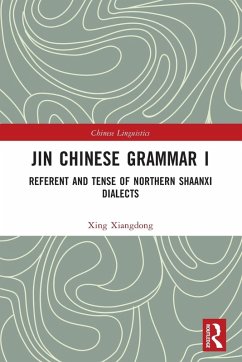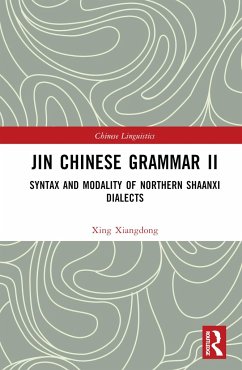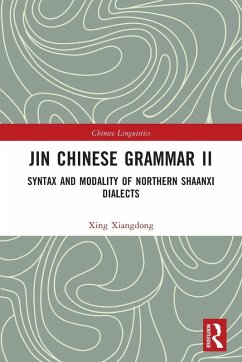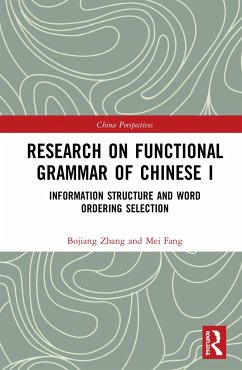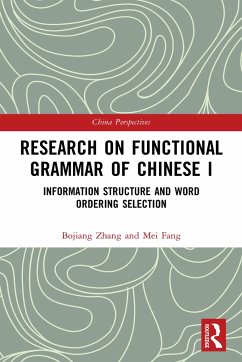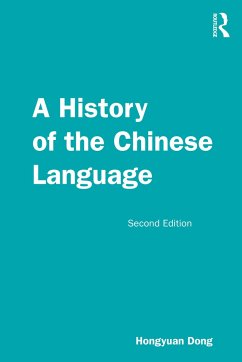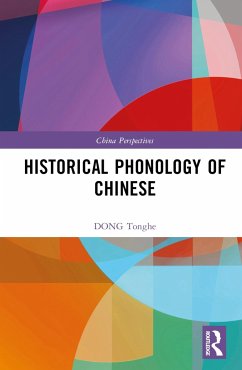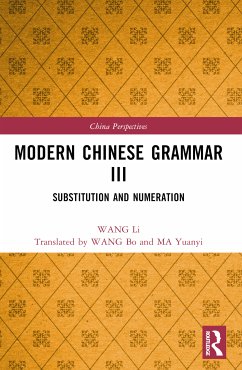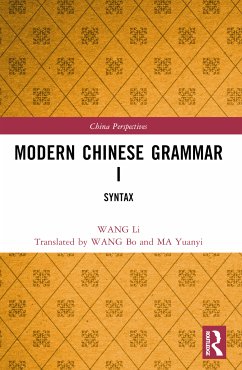
Jin Chinese Grammar I
Referent and Tense of Northern Shaanxi Dialects
Versandkostenfrei!
Versandfertig in 6-10 Tagen
154,99 €
inkl. MwSt.
Weitere Ausgaben:

PAYBACK Punkte
77 °P sammeln!
This book is the first volume of a two-volume set that synchronically and diachronically studies the Jin dialect of Northern Shaanxi Province in China, with a focus on the grammatical features of pronouns, aspect and appearance, and the system of tenses. The Jin dialect of Northern Shaanxi is one of the most ancient, complicated, and representative dialects of the Yellow River region and figures prominently in our understanding of the Jin dialect and northern Chinese dialects as a whole. This volume first elucidates the semantic and dialectal differences in personal pronouns, demonstrative pro...
This book is the first volume of a two-volume set that synchronically and diachronically studies the Jin dialect of Northern Shaanxi Province in China, with a focus on the grammatical features of pronouns, aspect and appearance, and the system of tenses.
The Jin dialect of Northern Shaanxi is one of the most ancient, complicated, and representative dialects of the Yellow River region and figures prominently in our understanding of the Jin dialect and northern Chinese dialects as a whole. This volume first elucidates the semantic and dialectal differences in personal pronouns, demonstrative pronouns, and interrogative pronouns, as well as the special linguistic origins of the pronouns. The following chapter elaborates the different devices to express the status of realizing, accomplishing, lasting, and momentum-reducing as well as differences among similar aspectual markers and dialects. The final chapter examines the tense system, including anterior (past), posterior (future), and simple (present) tenses, the markers of which differ from each other in their syntactic representations.
The book will be a useful reference for scholars and students interested in Jin dialects, Chinese dialects, and Chinese linguistics.
The Jin dialect of Northern Shaanxi is one of the most ancient, complicated, and representative dialects of the Yellow River region and figures prominently in our understanding of the Jin dialect and northern Chinese dialects as a whole. This volume first elucidates the semantic and dialectal differences in personal pronouns, demonstrative pronouns, and interrogative pronouns, as well as the special linguistic origins of the pronouns. The following chapter elaborates the different devices to express the status of realizing, accomplishing, lasting, and momentum-reducing as well as differences among similar aspectual markers and dialects. The final chapter examines the tense system, including anterior (past), posterior (future), and simple (present) tenses, the markers of which differ from each other in their syntactic representations.
The book will be a useful reference for scholars and students interested in Jin dialects, Chinese dialects, and Chinese linguistics.




